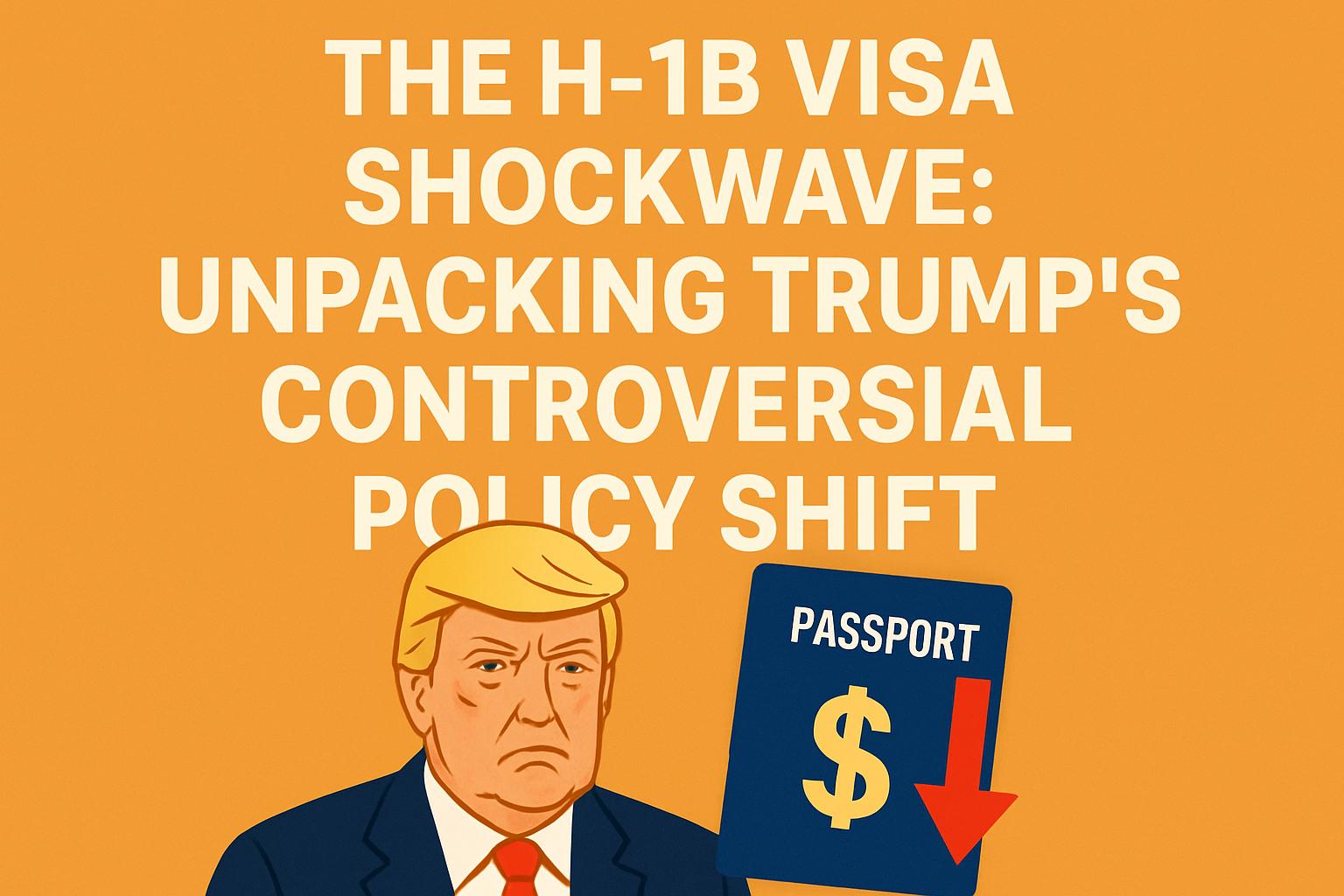In a surprising turn of events, President Trump announced on September 19th a dramatic change to the H-1B visa program, setting a $100,000 annual fee for all holders effective from September 21st. This sudden policy shift has triggered a storm across the tech and financial sectors, as well as among governments in countries like India and South Korea, and the thousands of individuals who hold these visas. The worry is palpable: America risks losing its long-standing pipeline of skilled international talent, potentially placing thousands of families in precarious situations.
Understanding the H-1B Visa: A Gateway for Global Talent
The H-1B visa, introduced in the 1990s, is a non-immigrant visa designed for foreign professionals, predominantly in fields like technology, engineering, mathematics, and finance. It’s a crucial conduit for high-skilled workers to enter the U.S. labor market.
- Annual Cap: The program issues approximately 85,000 visas a year, with 20,000 reserved for those earning a master’s degree or higher in the U.S.
- Main Source Countries: India and China are the primary contributors, with India historically filling over 70% of these positions.
- Employer Dependence: Giants like Amazon, Microsoft, Google, and Apple heavily rely on H-1B visas to fill STEM talent gaps.
As the U.S. grapples with a persistent shortage of STEM experts, the H-1B program has become vital for sustaining innovation and competitiveness. Trump’s new policy is seen as a fundamental threat to this system.
Tech Titans Sound the Alarm: Urgent Recall for H-1B Workers
This policy directly impacts the ‘talent arteries’ of technology powerhouses. Amazon’s internal immigration team has urgently instructed employees to remain in the U.S.; those overseas must return by the September 21st deadline. Similarly, legal teams at firms like JPMorgan Chase have advised employees to halt international travel, while Microsoft has warned that failing to meet the deadline may jeopardize visa status.
American Companies Brace for Financial Strain
As of mid-2025, Amazon employs over 14,000 H-1B visa holders, the most in the country, while Microsoft, Meta, Apple, and Google each have more than 4,000. The new $100,000 fee per worker could severely impact these firms, adding unforeseen financial burdens that could affect hiring plans and research investments, thus potentially diminishing America’s tech sector advantage globally.
International Repercussions: Concerns from India and South Korea
India’s Ministry of External Affairs is examining the policy’s implications, underscoring the shared innovation interests between U.S. and Indian industries. India noted potential humanitarian impacts on immigrant families and called for considerate management of family reunification issues.
South Korea is similarly assessing the policy’s potential effects on its businesses and skilled labor, acknowledging the importance of H-1B visas for facilitating technological talent mobility. This development poses a new hurdle in the bilateral exchange of tech innovations.
Public Opinion: A Mixture of Fear, Anger, and Support
Anxiety Among H-1B Holders
On platforms like X, a significant number of H-1B holders have voiced fears and uncertainty, especially as Indian professionals constitute about 71% of these visas. Descriptions of frantic returns to the U.S. are common, with airports crowded with families rushing to beat the deadline.
The financial burden looms large: for junior H-1B engineers earning below $80,000 annually, a $100,000 fee is untenable, making renewal or new applications nearly impossible.
Criticism Peaks: Accusations of Unfairness
Critics label the policy ‘reckless’ and ‘unfair,’ alleging it unjustly penalizes skilled workers and undermines America’s reliance on international talent. Some Indian professionals even suggest the policy carries discriminatory undertones, questioning whether the Trump administration is targeting specific groups. Legal experts predict the fee will face judicial challenges.
Supporters Argue for Domestic Job Security
Conversely, some Americans support the policy, believing it will compel companies to reassess their dependency on foreign labor, prioritizing American hires. Conservative commentators hail it as a ‘reset’ of the labor market to preserve local job prospects, with a few humorously pointing out that immigration lawyers might become billionaires as a result. Tech advocates call for exceptions for startups and key positions to avoid hampering competitiveness.
The White House has yet to address widespread concerns, as markets and governments await further details. The legal community generally anticipates extensive lawsuits challenging the policy.

![[News] Bitcoin at a Turning Point? 10x Research Signals a Bullish Macro Shift Ahead](https://cryptoexplores.com/wp-content/uploads/2025/06/new20250616.jpg)
![[News] Binance Lists $HOME, the Gas-Free, Bridge-Free All-in-One DeFi App](https://cryptoexplores.com/wp-content/uploads/2025/06/news20250617.jpg)